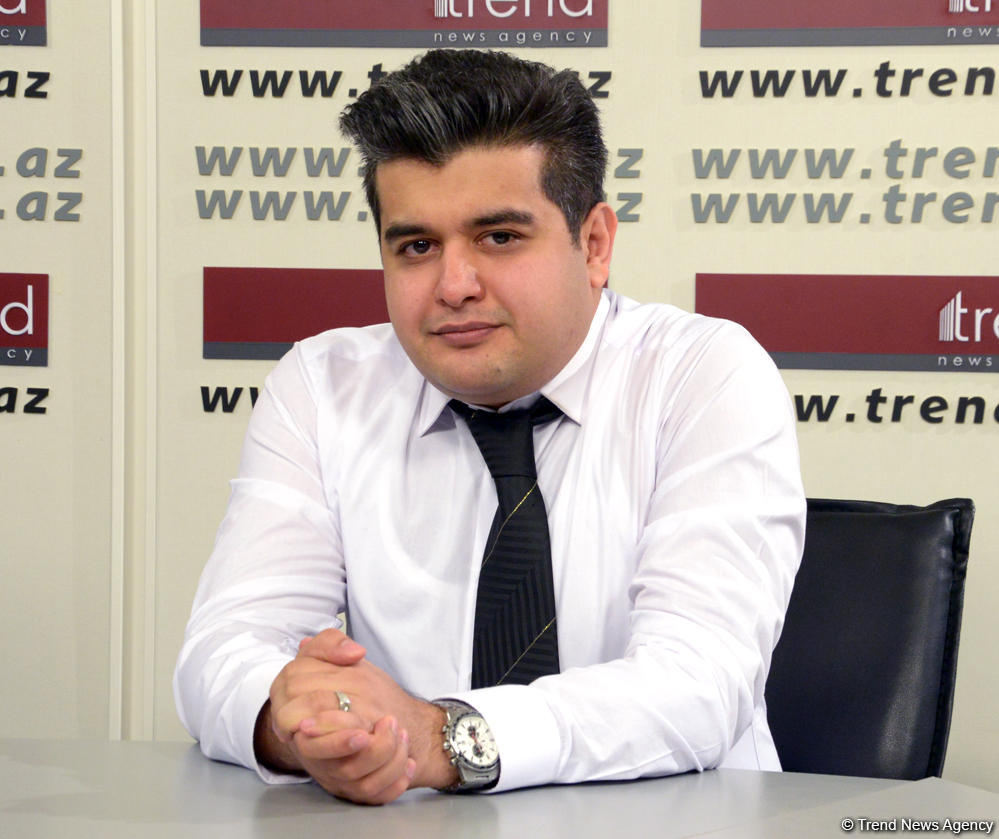Baku, Azerbaijan, April 4
By Farhad Daneshvar – Trend:
Ankara and Moscow have apparently taken major steps in improving once hostile ties as the Turkish and Russian leaders on Tuesday took part in a symbolic ceremony marking the construction of the Muslim nation’s first and long-awaited nuclear power plant.
“Turkey is a priority, very reliable partner for us. That concerns as well the adherence to our agreements on a range of large regional problems that we face and would like to be solved. I see no issues today that would hinder further development of the relations with the Republic of Turkey,” Russian President Vladimir Putin said in a joint press conference with Turkish counterpart, Recep Tayyip Erdogan, on April 4.
The Akkuyu power plant in the Mediterranean coastal province of Mersin is estimated to cost $20 billion and meet 10 percent of Turkey's energy needs.
Iran’s footpath
Despite the fact that Erdogan and Putin exchanged warm words and the Russian leader expressed firm commitment to completing the nuclear power plant, many still remain skeptical of many aspects of the project.
It seems that Ankara is now following in Tehran’s footsteps as its atomic program reminds the experience of cooperation between Russia and Iran where the sides worked together for long years to bring Bushehr nuclear power plant on stream.
Iran’s 1,000-megawatt Bushehr plant, which was connected to the national grid only in September 2011, has a long history.
Germany’s Siemens was the first constructor of the project under the reign of the US-backed Pahlavi monarchy which was shut down following the 1979 Islamic Revolution.
The uncompleted project sustained major damages by Iraqi air strikes during the war between the two countries in the 1980s.
Later in 1990s Russian engineers took over the project but the launch was further delayed by disagreements between Tehran and Moscow as well as technical and political challenges.
Studies have suggested that international sanctions in addition to the expenses of construction, operation and research made Iran’s nuclear program astronomically costly.
The inauguration of Ankara’s Russian-backed project has also been postponed over the past several years and now Turkey is apparently seeking to join the world’s nuclear energy club but it remains unclear when it would really come online.
Although it is projected to inaugurate the first phase of the project in five years, neither the required technology transfer from Russia nor a construction completion date has been set.
Russia – Turkey ties improve, why?
While some believe that Turkey and Russia are on a collision course, the past year has seen evidence of progress in the gradual rapprochement process between the two sides.
The diplomatic ties between the two countries witnessed serious crisis after Turkey downed a Russian warplane back in November 2015 but the recent trip has been interpreted by many as a strong indication of improvement in ties.
Mutual interests in international relations appear as the main drive behind the unity between the former rivals.
The Middle Eastern developments, in fact, display the interest of Russia in Turkey which Moscow considers as a huge market and in the meantime a path to deliver its gas to Europe. But more important is Moscow’s triumph in luring a NATO member to its front.
On the other hand, the fact that both leaders, Russian President Vladimir Putin and Turkish President Recep Tayyip Erdogan, have recently become under the fierce criticism of westerners has also contributed to the improving ties.
Meanwhile, Turkey appears interested in getting financial and technical support from Moscow as Russian influence in the Middle East is rapidly growing.
Turkish nuclear program
From the economic point of view, it appears that Turkey has a legitimate right to obtain nuclear fuel because the 80 million-nation lacks hydrocarbon resources.
In the meantime, Saudi Arabia’s plans to achieve nuclear technology and available nuclear energy in other regional countries give ground to Turkey to justify its plan to fulfill its nuclear ambitions.
On the other hand, the May 12 deadline is looming and the US will probably leave the nuclear deal which would encourage Iran to resume its nuclear program.
Any objection by US President Donald Trump’s administration to Ankara over its nuclear program would be met by criticism as Riyadh has already gotten the green light from the White House to go on with a similar plan.
In this situation involving Russia in its nuclear project will win Turkey a strong diplomatic support in the international arena.
Farhad Daneshvar is the head of Iran Desk at Trend Agency, follow him on Twitter: @Farhad_Danesh






